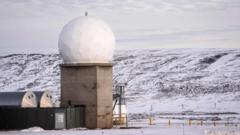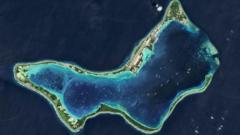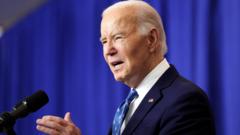Greenland has firmly rejected President-elect Donald Trump's assertion that the island should be under U.S. control, reaffirming its autonomy and commitment to partnership.
Greenland Stands Firm Against Trump's Ownership Claims

Greenland Stands Firm Against Trump's Ownership Claims
Greenland's Prime Minister reassures that the territory is not for sale, countering Trump's remarks on U.S. control.
Greenland's Prime Minister Mute Egede has publicly stated that his territory is "not for sale," responding to recent comments made by U.S. President-elect Donald Trump regarding his desire for ownership of the island. After Trump reiterated his statements about Greenland, an autonomous territory of Denmark, Egede emphasized that "Greenland belongs to the people of Greenland."
The strategic importance of Greenland is highlighted by the presence of the Pituffik Space Base, formerly known as Thule Air Base, which is owned by the U.S. and plays a critical role in national security due to its geographical position between the U.S. and Europe. Trump, on his social media platform Truth Social, framed his remarks around national security interests, stating that U.S. control over Greenland is an "absolute necessity." However, Egede firmly countered these assertions, calling for ongoing cooperation and trade while prioritizing Greenland's freedom.
Despite international interest, particularly from the U.S., Denmark had not issued a direct response to Trump's comments at the time. The sentiment against the U.S. buying Greenland echoes a broader rejection of similar proposals made in the past, including Trump's initial suggestion in 2019 that was met with sharp criticism from Danish and Greenlandic leaders alike.
Trump's ambitions extend beyond Greenland, as he has also threatened to assert control over the Panama Canal, accusing Panama of excessive fees for access. The response from Panama's president affirming their sovereignty was immediate, reasserting ownership over the canal and its surroundings.
Historically, the idea of purchasing Greenland is not new; it was first considered in the 1860s during Andrew Johnson's presidency. The current political dynamics remind the world of the complexities surrounding territorial autonomy and international relations.



















